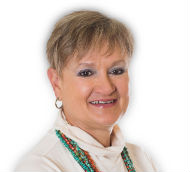Leading Elder Law Attorney Reveals Big Misconceptions about Nursing Homes, Medcaid and Your Assets – Las Cruces, NM
Michele Ungvarsky, founder of Estrada Law in Las Cruces, NM, discusses the top misconceptions that could lead to someone’s assets being wiped out to pay for nursing home care. For more information please visit www.estradalawpc.com

Las Cruces, NM, United States – May 3, 2019 /MM-REB/ —
In a recent interview, Michele Ungvarsky, founder of Estrada Law in Las Cruces, NM, revealed 5 big misconceptions surrounding nursing home care, medicaid and a loved one’s assets.
For more information please visit https://www.estradalawpc.com
When asked to comment, Ungvarksy said, “Unfortunately, many people – young and old alike – are unaware of what happens with assets when they or a loved one moves into a nursing home. These mistruths can derail asset management. Here are some avoidable misconceptions to keep you and your family on track.”
One of the most common myths is that people assume they won’t end up in a nursing home.
“These days, more and more of society’s elderly are spending time in nursing homes. In fact, according to the New England Journal of Medicine, 43% of people aged 65 will be in nursing homes, and more than half of these people stay in nursing homes for more than a year,” she said.
Ungvarksy was quick to add, “In other words, if you are part of the elderly population, then you have a one-in-four chance of living in a nursing home for at least a year.”
Many people also mistakenly think that they will lose their home after going into a nursing home.
“As long as your home is properly used and titled, then it’ll be an exempt asset while you’re residing at a nursing home. If there are problems with the titling of your home, for instance, then it could be used for nursing home-related expenses,” she said.
“There are also other exempt assets from being used for nursing home costs including one vehicle, certain life insurance policies, as well as pre-paid funeral arrangements.”
Another widespread misconception is that assets will be shielded if they are placed in joint names with their children.
“You will still be considered the owner of assets that have been put in joint names – even if this was done a long time ago. Be careful of this as creating certain joint assets could lead to divestments, which could then render you ineligible from getting Medicaid benefits for a time.”
Many make the incorrect assumption that they won’t be able to transfer assets if they’ve transferred assets five years before entering a nursing home.
When asked to elaborate, Ungvarksy said, “It’s true a five-year rule applicable to transferring assets exists – however, this has to do with the date in which someone applies for Medicaid, not when entering a nursing home.”
“The exact question on the Medicaid form is ‘Have you transferred any assets to an individual in the last five years?’ If so, then that individual will not be eligible for Medicaid for a certain period of time, which can be more or less than five years,” she added.
Following this, many seniors are under the impression that they won’t be able to transfer assets after moving into a nursing home.
“You’ll be penalized by being denied Medicare benefits for transferring assets after moving into a nursing home. However, this penalty is calculated in months, not in dollars. To calculate how long you’ll be ineligible for Medicaid after a transfer, divide the amount of the transfer by the State Divisor Rate.”
Source: http://RecommendedExperts.biz
Contact Info:
Name: Michele Ungvarsky
Organization: Estrada Law, P.C.
Address: 1340 Picacho Hills Dr, Las Cruces, NM 88007, USA
Phone: 575-556-2462
Website: https://www.estradalawpc.com
Source: MM-REB
Release ID: 508516